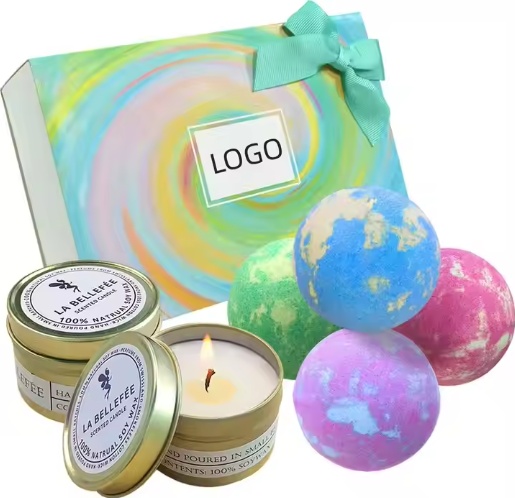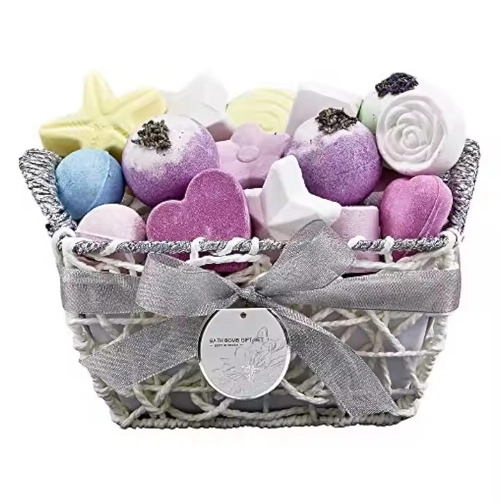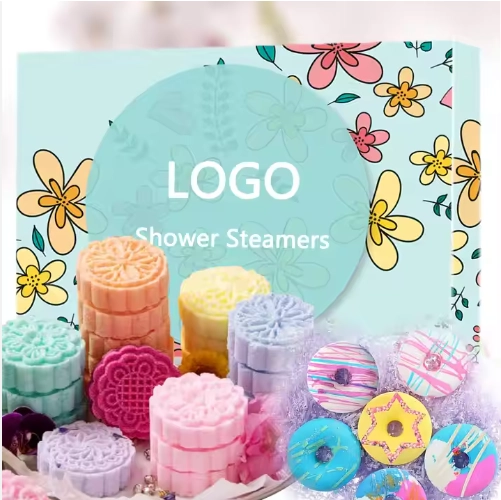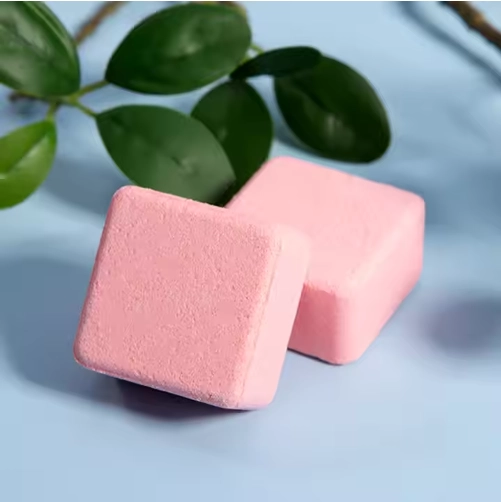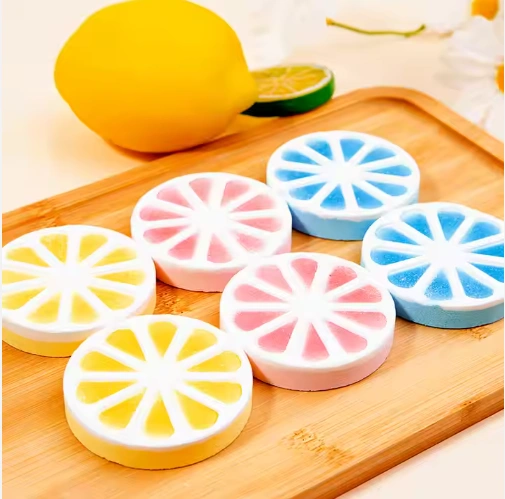Where Did the Bath Bomb Originate?
In 1989, Mo was simply looking for a way to make bath sessions more luxurious. She wanted to find a solution for pampering the skin without irritating it.
In 1995, the store Lush was created and Mo’s creations were made available to the public.
Bath bombs' primary ingredients are a weak acid and a bicarbonate base. These are unreactive when dry but react vigorously when dissolved in water to produce their characteristic fizzing over a period of several minutes. This is an acid-base reaction that involves the conversion of citric acid and sodium bicarbonate to monosodium citrate and carbon dioxide:
The other ingredients in bath bombs can vary considerably. However, most contain scented ingredients and dye to impart a pleasant fragrance and color to bathwater. Lathering agents, such as sodium lauryl sulfate, are also often added to create bubble foam.
Do Bath Bombs Expire?
Bath bombs have a shelf life of about one year. A bath bomb will last only as long as its composite ingredient with the least shelf life. It is true that a bath bomb has a scent as sweet as an air freshener, but if it does expire, it will start to change its scent as well as its good looks and effect.
If your bath bomb starts to smell bad, break up, or grow mold, it is a sign that it has expired, and you should learn to throw it out at this point.
Increase the shelf life of bath bombs
To make bath bombs last longer, there is one extra thing you can do. Aside from packaging them in an airtight container and storing them away from light and moisture, you might consider using a silica gel packet or oxygen absorber in the package.

You’ve probably encountered these little packets numerous times in your life without even thinking about it. They’re the little white packages clearly stamped with the text “DO NOT EAT.”
Silica Gel Packets
Silica gel packets absorb moisture. Silica gel can hold 40 percent of its weight in moisture. By absorbing the moisture that may accumulate in a package, these packets prevent any excess wetness from damaging the item. The result is a package that stays dry and fresh inside.
Oxygen Absorbers
Oxygen absorbers work differently but can be used to achieve a similar end result. In most packaged products, it’s simply not possible to remove every last bit of air from the package. Given that oxygen can destroy flavor, freshness, and scent, this can be a problem. Oxygen absorbers are often the solution.
As you might have guessed from the name, oxygen absorbers are designed to absorb oxygen from the atmosphere. Our atmosphere contains about 21 percent oxygen and 78 percent nitrogen, with a small amount of other gasses. In an airtight package, oxygen absorbers soak up 21 percent of the air that is composed of oxygen, leaving only nitrogen behind.
Not only does this keep items fresh, it also has the added benefit of preventing moisture in a round-about way. If you consider that water is composed of hydrogen and oxygen, a package that is devoid of oxygen simply cannot accumulate moisture because the elements that create water are no longer present.
Storing bath bombs with Oxygen Absorbers
You’ve probably already guessed how all of this relates to packaging bath bombs and bath salts. By including a packet that absorbs moisture or oxygen, it’s much easier to keep your bath bombs fresh.
It’s easy to find both oxygen absorbers and silica gel packets in bulk. Even if you don’t make a lot of bath products, the extra packets can be used to keep other things fresh around the house. For example, tossing an oxygen absorber into a jar with snacks or nuts can keep them fresh for much longer.
Can I still use an expired bath bomb?
A bath bomb is a product that contains foam agents or fragrant ingredients for a luxurious bathing experience. While you didn't mention a specific expiration date, generally, the ingredients in a bath bomb may lose their effectiveness or diminish over time.
If your bath bomb has expired, I recommend not using it. Expired products may lose their intended effects and potentially harbor bacteria. Additionally, the bath bomb may become dry, hardened, or lose its fragrance, resulting in a less enjoyable experience.

